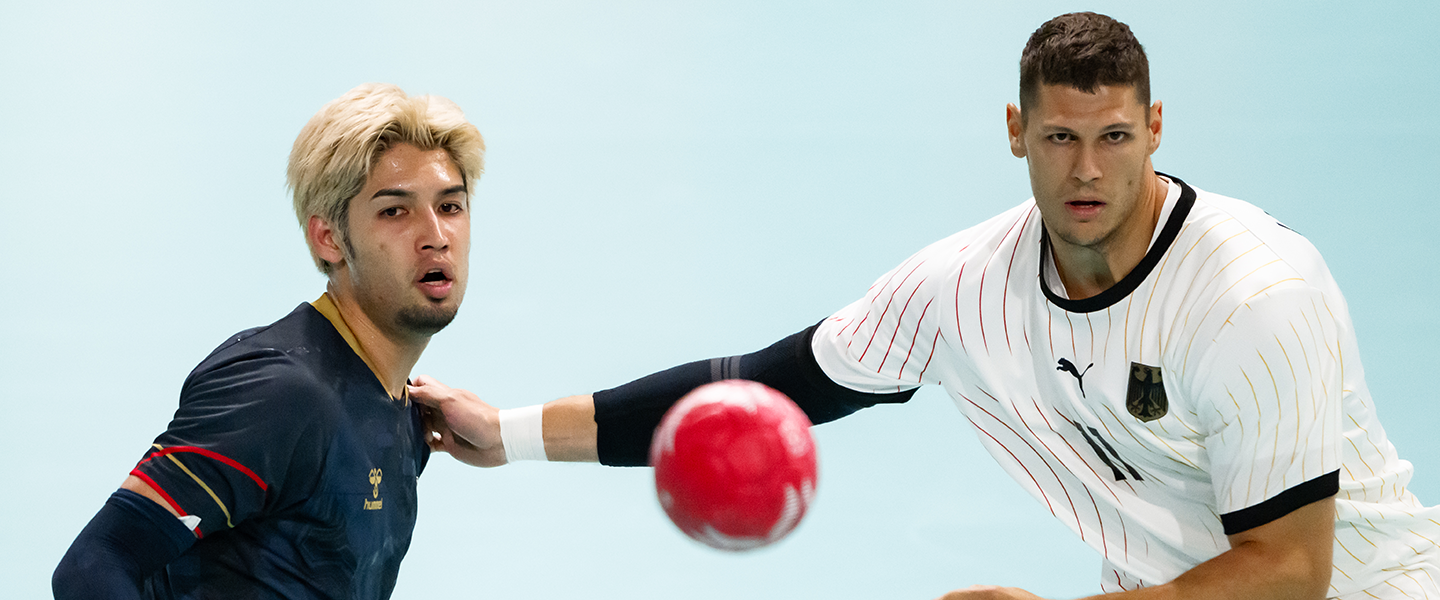"Step by step" development helps Japan transition into powerhouse status
10 Sep. 2024

Over the last years, Japan have made huge strides in handball, in all disciplines, in all categories of age and both in men’s and women’s handball. Take, for instance, the fantastic win recorded by the women’s side against co-hosts Denmark, 27:26, at the 2023 IHF Women’s World Championship. Or their long-awaited debut at the IHF Wheelchair Handball World Championship, due to take place this September, in Egypt, in the third edition of the competition.
This is clearly a plan which is working, as the sport becomes more and more popular in the Asian country, something that has been clearly on display in multiple instances, but most recently at the Paris 2024 Olympic Games, where the men’s team finished 11th, making back-to-back appearances in the competition for the first time since Los Angeles 1984 and Seoul 1988.
This time around, the Asian side failed to win a match, unlike at the Tokyo 2020 Olympic Games, but provided some fantastic performances, conceding one-goal losses against Croatia and Slovenia, much more experienced teams, with the latter European side making it to the bronze medal match, where they lost against Spain.
On one hand, Japan dizzied their opponents with a fantastic fast-paced style, which did not change despite their previous coach, Dagur Sigurdsson, being replaced by Antonio Carlos Ortega for the Paris 2024 Olympic Games, and now will be probably safeguarded by Japan’s new coach, Toni Gerona.
But on the other hand, they also impressed with the know-how of their players, with centre backs Kosuke Yashuhira (30 goals) and Naoki Fujisaka (25 goals) being in the best 20 goal scorers of the competition.
Another key player was back Adam Yuki Baig, who scored 11 goals, and was one of the few players who represented the Asian side at the second edition of the Olympics, after previously featuring at Tokyo 2020, when Japan were hosting.
“Since I was a child, my family has always watched sports. It doesn't matter the sport, for example, if there was an international soccer match or a boxing title match, the whole family would watch it together. In that environment, the desire to "participate in the Olympics" naturally grew in me,” said Baig in 2023 for Sportist, a Japanese outlet.
Born in Japan, hailing from a Pakistani father and a Japanese mother, Baig made his debut in the senior men’s national team aged only 18 years old in 2017. Since then, he has been a regular for the Asian side, honing his skills in France, at Cesson Rennes and Saran Loiret, before returning to Japan at Zeekstar Tokyo, in 2020.
With plenty of experience under his belt, the 1.94m left back became an integrant part of the side that secured the silver medal at the 2024 AHF Asian Men’s Handball Championship and the bronze medal at the 2020 AHF Asian Men’s Handball Championship.
Now, at Paris 2024, he fulfiled his dream, to display his skills in a sold-out arena at the Olympic Games, after the Tokyo 2020 Olympics were played without spectators, due to the rules enforced by the organisers under the guidelines caused by the Covid-19 pandemic.
“I was at my second Olympics edition. The Tokyo one was without fans, it was a bit difficult, a bit strange, but we were still at home. Now, with the fans, everything was different, it was really special,” said Baig.
While Japan might have won only one of the 10 matches played in the last two editions of the Olympics and finished 11th in both instances, the penchant for growth is impressive. For Paris 2024, they have won the AHF Asian Olympic Qualification Tournament in 2023, leaving out teams like Bahrain and Qatar, perennial powerhouses of the continent.
At club level, the developments made are bigger and bigger every year. Take the case of right wing Luc Abalo, who finished his career at Zeekstar Tokyo, Baig’s team, after having previously won the Olympic Games three times, the World Championship three times and the EHF EURO three times.
Or the case of French champions Paris Saint-Germain, a star-studded team, who spent the last two preseasons in Japan, with stars like Nikola Karabatic or Andreas Palicka displaying their skills in front of the Japanese fans, which flocked to see them.
Like Baig, plenty of Japanese players are now sharpening their skills in Europe. Line player Shuichi Yoshida has spent the last four years at club level in Europe, signing this summer with French powerhouse HBC Nantes. Centre back Yashuhira played for Vardar Skopje, while right back Shinnosuke Tokuda featured at the IHF Men’s Club World Championship in the last two years for Saudi side Khaleej Club.
“Japan are developing step by step. Every year we are getting better, so we want to develop even more, to get better results,” says Baig.
The next opportunity? The 2025 IHF Men’s World Championship, when Japan return to the world handball flagship competition for the first time since 2021, when they finished 18th. Featuring in a group which also contains Sweden, Spain and Chile, it might be a challenge.
But, as it could be seen, these challenges make teams better and with an experienced coach like Toni Gerona overseeing every aspect of the men’s pyramid in Japan, the next steps look even more exciting.

